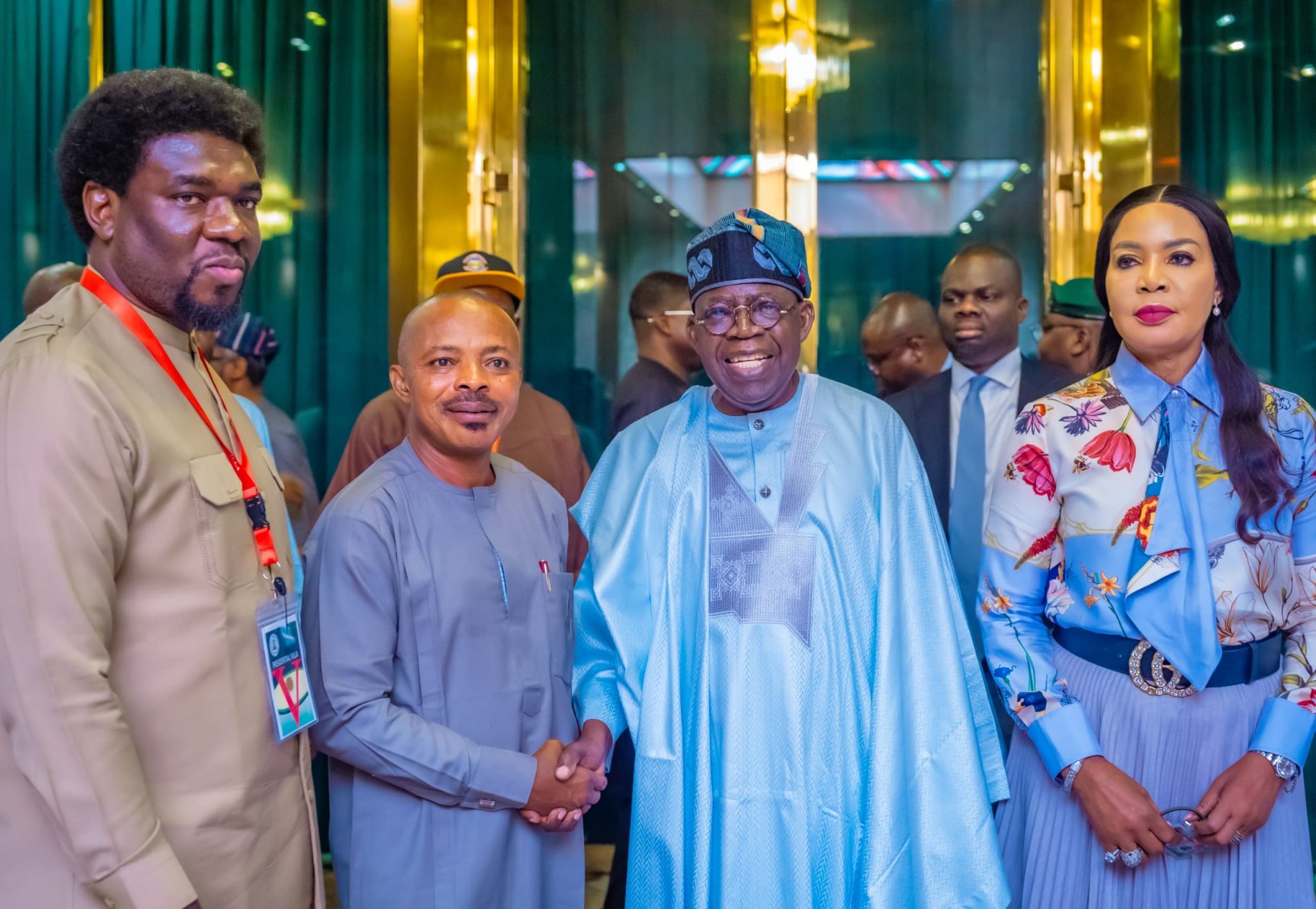Minimum wage: Tinubu and Labor agree on N70,000; NASS gets bill Tuesday
•FG orders a review of the minimum wage every three years, and labor leaders defend the new pay.
•The President orders that SSANU’s unpaid salary be paid, OPS rejects the electricity tariff.
Tuesday will see the introduction of an executive law establishing the new national minimum wage in the National Assembly, which comes after President Bola Tinubu and labor leaders reached a consensus on increased worker compensation.
At their meeting on Thursday at the Aso Presidential Villa in Abuja, the President, the Nigeria Labour Congress, and the Trade Union Congress of Nigeria,
led by their respective presidents, Joe Ajaero and Festus Osifo, decided on N70,000 as the new national minimum wage.
The N30,000 minimum salary, which ended on April 18, 2024, would be replaced by this amount.
The Special Adviser to President Bola Tinubu on Information and Strategy, Bayo Onanuga, assured one of our correspondents that the
parliamentarians will receive the executive bill on the new minimum wage by Tuesday in order to give the deal legal teeth before it is implemented.
“The National Assembly will receive the minimum wage by Tuesday,” he declared. In the meeting, he (President Tinubu) assured labor that it would be ready by Tuesday.
New pay
“I have heard all of your presentations,” the President declared, announcing the new wage standard. Your goal in coming here is to obtain something for your members.
If you look at my past, you will see that I have never been one who wish to make workers’ difficulties better. I am a member of the people and all of the leaders.
Together, we are advancing this economy. Let’s examine the review period. Let’s confirm three years and agree on that. Two years is not long enough. We confirm a period of three years. We’ll examine it.
“I’ll be leaving the tripartite committee. Glancing at the review we completed, I will nudge forward a little. Yes, a person working for the federal government shouldn’t make less than N70,000.
We shall therefore set a threshold of N70,000.
After a debate among the stakeholders, the President was presented with two different amounts by the Tripartite Committee on the New National Minimum Wage, which was established in January.
Organized labor sought N250,000, while the government team and the organized private sector offered N62,000 instead.
After receiving the committee’s report, the president requested additional time to coordinate the figures with pertinent parties and then send an executive measure to the National Assembly.
He next met with the sub-nationals and the organized private sector to discuss a minimum wage that would be acceptable across the country.
The President met with the NLC and TUC leadership on Thursday of last week, but the meeting was adjourned one week early due to the inability to come to a resolution.
Following the President’s meeting with union leaders on Thursday, Mohammed Idris, the Minister of Information and National Orientation, gave a briefing to State House media, characterizing the meeting’s end as “A happy day for Nigeria.”
In addition to the agreement on the minimum wage, he revealed that the government had also committed to covering the paychecks that the
Non-Academic Staff Union of Universities and the Senior Staff Association of Nigerian Universities had withheld.
The administration also committed to guaranteeing local government autonomy and made significant expenditures in renewable energy and infrastructure, including the purchase of additional CNG buses to facilitate the country’s shift to cleaner energy.
It’s a good day for Nigeria, Idris said. As you may remember, we met with the organized private sector here last week.
Following the submission of the tripartite agreement to Mr. President, the sub-nationals have also held their various meetings with him.
“Work started last week.” They met with the President in meetings. They requested a one-week delay so they could continue their consultations.
Those consultations were conducted by them. We met with Mr. President today when they returned.
We are pleased to declare that an increase in the minimum wage to N62,000 has been agreed upon by the Federal Government and organized labor.
We anticipate that Mr. President would propose a new N70,000 national minimum wage for legislation to the National Assembly.
That’s not all, though. As the President has promised, there is also an increase in guaranteeing that significant investments will be made in the field of infrastructure.
The minister continued by listing more initiatives that the government planned to carry out.
Additionally, the federal government’s investment in renewable energy is growing. More funds will be allocated to the purchase of more CNG (compressed natural gas) buses.
According to the President, Nigeria will comply with CNG standards more closely.
“We’re moving forward with the switch to renewable energy and all the other things that Mr. President promised Labor.”
Idris declared that the problems with the Senior Staff Association of Nigerian Universities (SSANU) and the Non-Academic Staff Union (NASU) will also be examined.
Proud of the labor leaders’ patriotism, he declared, “We are happy.” We are really appreciative of the part organized labor has played in today’s world.
They acknowledged that the federal government plays a crucial role in guaranteeing local government authority and in ensuring that organized labor and the government are in agreement today.
“They have witnessed the President’s generosity, and the Labour leadership has stated that they did not come here for negotiations at all. They came here out of a strong feeling of patriotism to make sure that Nigeria stays unified and prospers.
He went on, “They agree with what the Federal Government has done today in that spirit.” Labour is to be commended for its patriotism.
We also want to express our gratitude to Mr. President, the Federal Government, the subnationals, and the organized private sector for their tireless efforts, which ultimately resulted in Nigeria emerging victorious.”
Speaking at the same event, Nkeiruka Onyejeocha, the minister of state for labor and employment, said that Tinubu took a
fatherly stance and emphasized the necessity for a review of the minimum wage policy every three years as opposed to the existing five-year cycle.
The Minister of Finance and Coordinating Minister of the Economy, Wale Edun, and the Minister of Budget and Economic Planning,
Abubakar Bagudu, were also given instructions by the President to evaluate the matter of SSANU and NASU payments, with an exemption from having to pay the outstanding amounts.
The two unions held protests in Abuja on Thursday, calling for the prompt payment of their salaries.
But according to reports, the Federal Capital Territory Police Command put an end to their nonviolent demonstration.
According to the minister, the President gave Nigerians confidence in his dedication to both the nation’s economic recovery and its residents’ well-being.
According to Ajaero, the President of the NLC, organized labor consented to the N70,000 national minimum wage because the
President was willing to evaluate the salary every three years as opposed to the customary five-year cycle.



